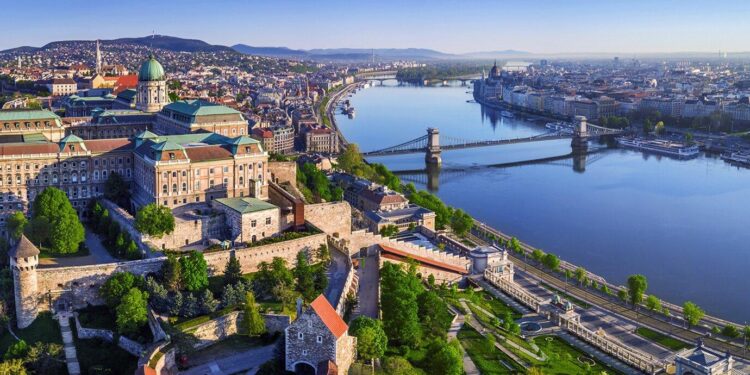A recent report reveals that Hungary and Slovakia have the capacity to end their reliance on Russian energy sources, signaling a significant shift in Central Europe’s energy landscape. As the region seeks to reduce dependency amid geopolitical tensions and the ongoing energy crisis, this finding offers fresh prospects for diversification and greater energy security. The analysis, highlighted by politico.eu, underscores the potential for these countries to accelerate their transition to alternative suppliers and sustainable energy solutions.
Hungary and Slovakia can feasibly end dependence on Russian energy sources
Recent analysis indicates that both Hungary and Slovakia possess the logistical capacity and infrastructure required to significantly reduce, if not entirely eliminate, their reliance on Russian energy imports. Central to this transition is the diversification of energy sources through expanding access to alternative suppliers and investing in renewable energy technologies. Enhanced grid interconnections with neighboring EU countries and existing natural gas storage facilities create a viable framework for these nations to secure a more resilient and independent energy future.
Key strategies identified include:
- Increasing LNG imports via Adriatic terminals
- Strengthening pipeline connections with Central European neighbors
- Boosting renewable energy capacity, particularly solar and wind
- Modernizing energy infrastructure to improve efficiency and reduce demand
| Country | Current Russian Energy Dependency (%) | Potential Reduction by 2027 (%) | Key Alternative Energy Source |
|---|---|---|---|
| Hungary | 85 | 60 | LNG from Croatia |
| Slovakia | 78 | 55 | Renewables + EU pipelines |
Transition strategies emphasize investment in renewable infrastructure and regional cooperation
Both Hungary and Slovakia are targeting a swift pivot away from Russian energy dependencies by channeling significant investments into renewable infrastructure. This strategy prioritizes expanding solar and wind capacities alongside modernizing the existing energy grid to accommodate cleaner sources. Experts highlight that ramping up domestic production not only enhances energy security but also aligns with European Green Deal objectives, positioning both nations as forward-thinking players in the regional energy landscape.
Crucially, the report underscores the importance of regional cooperation to maximize the effectiveness of this transition. Cross-border interconnections and shared energy projects can smooth supply fluctuations and reduce costs. The proposed framework includes:
- Joint renewable energy development zones
- Integrated energy trading platforms between Hungary and Slovakia
- Collaborative grid management and emergency response protocols
| Renewable Source | 2023 Capacity (MW) | Projected 2028 Capacity (MW) | Investment (‚ā¨ billion) |
|---|---|---|---|
| Solar | 1,200 | 3,800 | 2.5 |
| Wind | 850 | 2,600 | 1.8 |
| Grid Modernization | N/A | Full integration | 1.2 |
Policy recommendations call for accelerated EU support and diversification of energy imports
EU policymakers are urged to enhance and expedite support initiatives to help Hungary and Slovakia sever their reliance on Russian energy. Central to these recommendations is the need for increased financial aid and infrastructure investments that facilitate access to alternative energy sources. By prioritizing projects such as pipeline interconnectors, LNG terminals, and renewable energy integration, the bloc can accelerate the energy transition while bolstering supply security for vulnerable Member States.
Key focus areas include:
- Expanding cross-border energy networks to improve import flexibility
- Investing in smart grids and energy storage to stabilize supply
- Diversifying suppliers through long-term contracts outside Russia
- Supporting green energy projects to reduce fossil fuel dependency
| Support Measure | Impact | Timeline |
|---|---|---|
| Pipeline Interconnector Expansion | Improved import diversification | 1-3 years |
| LNG Terminal Upgrades | Increased supply options | 2-4 years |
| Renewables Funding Boost | Lowered fossil fuel use | Immediate to ongoing |
The Way Forward
As Hungary and Slovakia move closer to severing their reliance on Russian energy, the findings underscore a significant shift in Eastern Europe’s energy landscape. While challenges remain, the report highlights both nations’ growing capacity to diversify supplies and bolster energy security amid ongoing geopolitical tensions. This development signals a potentially transformative step toward greater independence and resilience within the region’s energy markets.
















